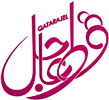Small businesses are the backbone of the Arab world’s economy, contributing significantly to employment and innovation. In 2025, with the region’s focus on economic diversification—evidenced by Saudi Arabia’s Vision 2030 and the UAE’s SME growth initiatives—small businesses face both opportunities and challenges. A 2024 World Bank report noted that SMEs account for 90% of businesses in the Arab world, yet many struggle with scaling due to limited resources and competition. This article presents ten practical ideas for developing small businesses, tailored to the Arab world’s cultural, economic, and technological landscape. Optimized for search engines with keywords like “small business growth Arab world 2025,” this 2000-word guide offers actionable strategies to help entrepreneurs in cities like Amman, Cairo, and Dubai thrive.
The Importance of Small Business Growth in the Arab World
Small businesses drive economic resilience and social progress in the Arab world.
Key Contributions
• Employment: SMEs employ 60% of the region’s workforce, per a 2024 OECD report, reducing unemployment in countries like Egypt and Morocco.
• Innovation: Small businesses, such as Jordan’s tech startups, foster creativity, contributing to the region’s $23 billion tech market (2024 estimate).
• Community Development: Local businesses in Tunisia and Oman strengthen community ties, preserving cultural heritage through products like handicrafts.
• Economic Diversification: In oil-dependent economies like Saudi Arabia, SMEs reduce reliance on hydrocarbons, aligning with Vision 2030’s goals.
Regional Context
The Arab world’s young population (60% under 30) and growing digital adoption—70% internet penetration in the GCC—create a fertile ground for small business growth. However, challenges like funding access and market competition necessitate strategic approaches.
Ten Practical Ideas for Small Business Development
Below are ten actionable ideas, grounded in regional trends and global best practices, to help small businesses grow.
Leverage Social Media Marketing
• Why It Works: Social media platforms like Instagram and TikTok are widely used, with 80% of Arab youth active online, per a 2024 Statista survey. Targeted ads increase brand visibility by 40%.
• How to Implement: Create engaging content (e.g., behind-the-scenes videos of a Cairo café) and use Arabic hashtags like #مشروع_صغير. Tools like Nawafidh (Arabic social media scheduler) streamline posting.
• Example: A Riyadh bakery used Instagram Reels to showcase desserts, doubling sales in six months.
• Regional Tip: Focus on Ramadan campaigns, offering promotions to tap into high engagement periods.
Adopt E-Commerce Platforms
• Why It Works: E-commerce in the Arab world is projected to reach $50 billion by 2025, per a 2024 eMarketer report. Platforms like Noon and Souq.com expand market reach.
• How to Implement: Set up a store on Zid or Noon, offering cash-on-delivery, a preferred payment method in Egypt and Saudi Arabia. Optimize product descriptions with Arabic keywords.
• Example: A Moroccan artisanal shop on Zid increased sales by 30% by targeting GCC customers.
• Regional Tip: Offer free shipping during Eid to attract customers, a common practice in the UAE.
Offer Localized Products or Services
• Why It Works: Tailoring offerings to cultural preferences builds customer loyalty. A 2023 study found 70% of Arab consumers prefer locally relevant brands.
• How to Implement: Incorporate regional elements, like Bedouin-inspired designs in Jordanian fashion or Kuwaiti spices in food products. Conduct market research via social media polls.
• Example: A Tunisian café offering traditional shakshuka variations attracted 20% more customers.
• Regional Tip: Highlight heritage in branding, such as using Arabic calligraphy on packaging.
Implement Customer Loyalty Programs
• Why It Works: Loyalty programs increase retention by 25%, per a 2024 Harvard Business Review study, fostering repeat business in competitive markets.
• How to Implement: Offer discounts or free items after a set number of purchases, using apps like LoyaltyLion or simple punch cards. Promote via WhatsApp, widely used in Lebanon.
• Example: A Beirut salon offered a free haircut after ten visits, boosting repeat visits by 15%.
• Regional Tip: Tie rewards to cultural events, like free coffee during Ramadan Iftar.
Utilize Affordable Digital Tools
• Why It Works: Tools like Trello and Google Keep streamline operations, saving 20% of work time, per a 2023 Journal of Business Research study.
• How to Implement: Use Trello for project tracking, Google Calendar for scheduling, and Canva for Arabic marketing graphics. Free tiers suit budget-conscious businesses in Iraq or Yemen.
• Example: An Amman graphic design studio used Trello to manage client projects, reducing delays by 30%.
• Regional Tip: Leverage Arabic-supported tools like Nawafidh for social media to align with local preferences.
Collaborate with Local Influencers
• Why It Works: Influencer marketing boosts brand trust, with 60% of Arab consumers influenced by social media personalities, per a 2024 YouGov survey.
• How to Implement: Partner with micro-influencers (10K–50K followers) in cities like Dubai or Casablanca for authentic promotion. Offer free products or discounts for posts.
• Example: A Qatari fashion brand collaborated with a local Instagrammer, gaining 5,000 new followers in a month.
• Regional Tip: Focus on family-oriented influencers during Eid or back-to-school seasons for broader appeal.
Focus on Sustainability
• Why It Works: Sustainability resonates with Arab consumers, with 50% preferring eco-friendly brands, per a 2024 Nielsen report. It also aligns with regional goals like the UAE’s Net Zero 2050.
• How to Implement: Use biodegradable packaging or promote recycling, like a Moroccan café offering discounts for reusable cups. Highlight efforts on social media.
• Example: A Saudi clothing brand using recycled fabrics saw a 20% sales increase after eco-friendly campaigns.
• Regional Tip: Emphasize sustainability during World Environment Day, popular in GCC countries.
Provide Training for Employees
• Why It Works: Skilled employees improve service quality, increasing customer satisfaction by 30%, per a 2023 McKinsey study.
• How to Implement: Offer free online courses via Coursera or local workshops in Qatar’s Education City. Train staff in customer service or digital tools.
• Example: A Manama restaurant trained staff in upselling, boosting revenue by 15%.
• Regional Tip: Use Arabic-language training resources from platforms like Edraak to ensure accessibility.
Tap into Government Support Programs
• Why It Works: Governments offer grants and training, with Saudi Arabia allocating $13 billion to SMEs in 2024, per Vision 2030 reports.
• How to Implement: Apply for programs like Jordan’s JEDCO, Egypt’s MSME Agency, or the UAE’s Khalifa Fund. Attend government-sponsored workshops for networking.
• Example: A Tunisian tech startup secured a $10,000 grant from Innovate Tunisia, enabling expansion.
• Regional Tip: Check eligibility on official portals like Monsha’at (Saudi Arabia) during annual SME forums.
Engage in Community Events
• Why It Works: Community engagement builds brand loyalty, with 65% of Arab consumers favoring local businesses, per a 2024 Kantar survey.
• How to Implement: Sponsor or participate in souq festivals, like Oman’s Muscat Festival, or host workshops at community centers in Beirut.
• Example: A Kuwaiti bakery at a local fair gained 200 new customers through free samples.
• Regional Tip: Align with cultural events like Ramadan markets to maximize visibility.
Challenges and Solutions for Small Businesses
Scaling small businesses in the Arab world faces obstacles, but strategic solutions can address them.
Challenges
• Funding Access: Limited capital hinders growth, with 50% of SMEs citing funding as a barrier, per a 2024 World Bank report.
o Solution: Apply for microloans from programs like Morocco’s Intelaka or use crowdfunding platforms like Zoomaal.
• Digital Literacy: Some owners in rural Yemen or Sudan lack tech skills.
o Solution: Enroll in free digital training via Edraak or UAE’s Digital Skills Academy.
• Market Competition: Large corporations dominate in cities like Dubai.
o Solution: Focus on niche markets, like localized products, to differentiate.
• Cultural Expectations: Social obligations, like frequent gatherings, reduce work time.
o Solution: Integrate business into events, like selling at community fairs.
Regional Support
Initiatives like Qatar’s SME Toolkit and Egypt’s Startup Egypt provide resources, training, and funding, easing these challenges in 2025.
Frequently Asked Questions (FAQs)
1. Why is social media marketing effective for small businesses in the Arab world?
High social media penetration (80% among youth) and platforms like Instagram allow targeted, cost-effective outreach.
2. How can small businesses afford digital tools?
Free tools like Google Keep, Trello’s free tier, and Google Calendar are accessible, with affordable Arabic options like Nawafidh.
3. What government programs support SMEs in the Arab world?
Programs like Saudi Arabia’s Monsha’at, Jordan’s JEDCO, and the UAE’s Khalifa Fund offer grants, loans, and training.
4. How can sustainability benefit small businesses?
Eco-friendly practices attract 50% of consumers and align with regional goals like Net Zero 2050, boosting brand loyalty.
5. What’s the easiest way to start with e-commerce?
Set up a store on Zid or Noon, using cash-on-delivery and Arabic descriptions to appeal to local customers.
Conclusion
Small businesses in the Arab world are poised for growth, fueled by a young, digital-savvy population and supportive government initiatives. The ten ideas presented—leveraging social media, adopting e-commerce, offering localized products, and more—provide practical, culturally relevant strategies for success. By addressing challenges like funding and competition with solutions like government programs and digital tools, entrepreneurs can scale effectively. From Cairo’s bustling markets to Dubai’s tech hubs, these approaches empower small businesses to thrive in 2025, contributing to economic diversification and community resilience. Embracing these ideas, rooted in the region’s heritage and modern aspirations, ensures a bright future for Arab entrepreneurs.

